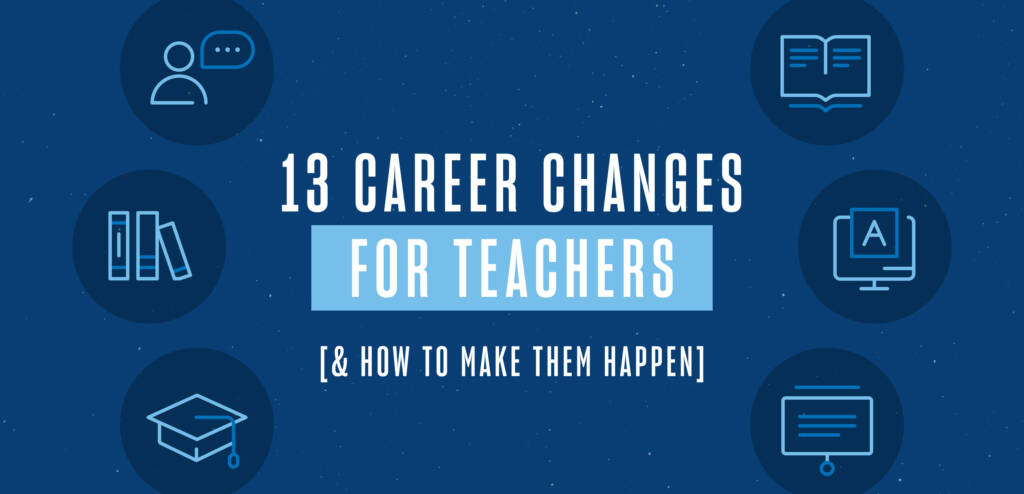Teaching comes with significant pressure — not only are teachers responsible for their students’ academic success, but they also need to accommodate students of different ages, abilities and learning preferences, all while adhering to state and national educational standards. On top of that, teachers have very little time outside of the classroom in which to design lessons from scratch, what with grading, staff meetings, professional development days and extracurricular responsibilities.
Planning lessons ahead of time can vastly improve a teacher’s ability to stay on track and cover the necessary course content, even when the unexpected happens. Lesson plans provide a framework to follow, which helps minimize teachers’ stress when they need to be “on.” Since teachers with adequate lesson plans know what they need to accomplish for each lesson ahead of time, there’s no need to make up course content on the spot.
Besides segmenting course content into a manageable framework, lesson plans can help teachers:
- Organize classroom activities
- Highlight specific areas of focus
- Give students a sense of structure
- Experiment with new learning engagements
- Set goals for student achievement
If you think you’re too busy or unable to learn a new teaching strategy, keep in mind that teachers around the world needed to quickly adapt to remote teaching during the 2020 onset of the COVID-19 pandemic. If millions of teachers could adopt new tools and methods in a matter of days or weeks, any teacher can learn and implement a new way of building and organizing their lessons.
There are plenty of tried-and-tested lesson planning methods and strategies that currently help teachers and their students stay focused. No need to build something from nothing when others have done the legwork! Here, we share 24 of the best lesson planning resources available today.
Want the Brochure for USD’s Online Master of Education Degree?
Earn your M.Ed. in just 20 months with a program designed for working professionals.
Top 24 Lesson-Planning Resources for Teachers
There are thousands of resources on the internet that aim to help teachers plan their lessons, ranging from award-winning to… questionable at best. The following are 24 vetted resources that will help take some of the pressure off your lesson planning sessions. Please note that resources are listed alphabetically.
- 826 Digital
Middle–High school
Free with account
This creative writing and educational resource supports educators in teaching writing skills to students in middle and high school. It offers a variety of adaptable writing tools and lesson plans crafted by experienced educators, and encourages student engagement through storytelling and imaginative assignments. - Annenberg Classroom
Middle–High school
Free
Politicians and activists often invoke the Constitution, but how many school-aged children know what the Constitution stands for? Annenberg provides downloadable handouts, videos, games and more to help children and adults understand our country’s founding document. While the site doesn’t allow filtering for grade level, it does filter for topics, covering everything from the Second Amendment to women’s rights to free speech. - BetterLesson
Grades K–12
Free with account
Along with lessons and workshops on topics like teaching strategies and educational funding, BetterLesson provides free printable lesson plans to users who create an account. - EDSITEment!
Grades K–12
Free
Developed by the National Endowment for the Humanities, EDSITEment offers a variety of free resources in literature, social studies and history. Materials include lesson plans and study guides for teachers seeking content with a strong humanities focus. - Education.com
Grades Pre-K–8
Free with account
With over 30,000 worksheets, games and lesson plans, Education.com offers plenty of easy-to-follow lesson plan ideas for a rainy day, and can be a life-saver in the event of a substitute. - Education World
Grades Pre-K–12 and beyond
Free
This site provides a plethora of resources across various subjects beyond the classroom, including lesson plans, professional development materials and administrative resources. Content ranges from how to lead an interactive introduction to Ellis Island to facing criticism as a teacher. - FunBrain
Grades K–8
Free with ads
FunBrain caters to K–8 educators and students by offering games and activities that are both educational and engaging. Its content spans math, reading and literacy, and even extends to topics such as dealing with bullies and cliques. Students can access this site themselves, although they will have to wade through ads. - Kennedy Center Education
Grades K–12
Free
The Kennedy Center — the renowned NYC performing arts institution — offers free teaching materials for incorporating the arts into interdisciplinary teaching. Their education division (formerly known as ArtsEdge) provides lesson plans, how-to guides and video resources designed to integrate art into all subject areas. - Khan Academy
Pre-K–post-secondary
Free with account
Known for its free video tutorials and exercises, Khan Academy covers a wide range of subjects including math, science and humanities. It’s great for teachers seeking to supplement their instruction with interactive content. Lessons are browsable by standard, subject and grade. - Learning for Justice
Grades K–12
Free with account
How do educators approach some of the most complex and potentially divisive topics of our time? Learning for Justice gives teachers a structured way to engage their students in conversations about race, bodily autonomy, social justice and environmental issues while leaving space for differing viewpoints. Aligned with the mission of the Southern Poverty Law Center, Learning for Justice focuses on Southern American educational systems, but is applicable to school districts nationwide. - National Geographic Education
Pre-K–post-secondary
Resources free to save with account
Formatted like slide decks, lessons in National Geographic’s Resource Library cover the world’s most pressing issues using age-appropriate language and context. Lessons are enhanced by the beautiful and striking photographs for which the magazine is famous. - New York Times Learning Network
Grades 3–12
Free
Produced by the eponymous media outlet, this resource provides teaching materials based on current events and real-world issues using content from The New York Times. It offers lesson plans, quizzes and writing prompts for grades 3–12 — no subscription required. - Open Educational Resources Commons
Pre-K–Adult
Free
OER lays claim to “tens of thousands” of free educator tools, including lesson plans, assessments, case studies and teaching strategy frameworks. Users can filter resources by material type, student age and education standards. - OpenStax
Grades K–post-secondary
Free (some books require an account to view)
OpenStax offers free, peer-reviewed, openly licensed textbooks, which are also customizable. It’s an excellent resource for high school and college educators looking for comprehensive and adaptable textbooks. - PBS LearningMedia
Grades Pre-K–12
Free with account
PBS provides teachers with free lesson plans, as well as guides for creating their own lessons. The site also has a separate, student-only portal where learners can access lesson materials. - ReadWorks
Grade K–Adult
Free with account
Specializing in reading comprehension, ReadWorks provides research-based curriculum and tools to improve student reading abilities and support educators in need of structured reading lessons. Content spans nearly every subject — from architectural art to labor disputes to historic recipes. The site is also a great resource for adult English language learners. - ReadWriteThink
Grades K–12
Free
This site provides teachers with free reading and language arts resources. Downloadable assets include lesson plans, calendars, checklists and more. - Science Buddies
Grades Pre-K–12
Free
This site offers free hands-on science and engineering projects for all grade levels. It is particularly useful for teachers looking for ideas to enrich science education through experiments and activities. The free tutorial videos provide a great opportunity for parents to engage in science projects with their children at home! - Scholastic Education
Grades Pre-K–12
Products or collections priced individually; blog posts are free to access
Rather than specific lesson plans, Scholastic curates blog posts and book collections that address certain grade levels and topics, both academic and social-emotional. For example, teachers can find lists of age-appropriate books that cover mathematics, history, feelings and emotions, or inclusion excellence. - Smithsonian’s History Explorer
Grades K–12
Free
Smithsonian’s History Explorer is the go-to hub for downloadable history lessons. The site even offers opportunities for cross-curricular connections, enabling educators to incorporate elements of core subjects like math, science, writing and even performing and visual arts. - Teaching for Change
Grades K–12
Free
This organization provides teachers with tools to speak about and create equitable learning environments in a way that respects all students’ needs. Resources encourage students to question their own experiences and biases and transform society by integrating social justice and anti-bias curriculum. - TED-Ed
Elementary–College level
Free
TED (Technology, Entertainment, Design) Talks are wildly popular with adults of all ages, primarily because they present compelling, sometimes revelatory topics with charismatic presenters. TED Talks are useful for teachers in that they distill sometimes complicated topics into an entertaining, easily digestible format that keeps students engaged. TED-Ed provides free, age-appropriate videos on topics as varied as Juneteenth, the cost of gold and Alzheimer’s disease, and even allows teachers to customize lessons to their classroom needs. - Wakelet Education
All ages
Free with account
Wakelet provides a place for teachers and students to curate their own collections of lessons and educational resources. Teachers can browse other users’ collections, and even use ready-made collections for their own lessons on topics like ocean life, internet culture and virtual field trips. - Yale-New Haven Teachers Institute
Grades K–12
Free
A partnership between Yale University and New Haven public schools, this institute develops curriculum units designed by teachers for teachers, focusing on content depth and real-world applications in various subjects.
Are You An Educator Considering the M.Ed Path?
Read the top 11 reasons to earn your master of education degree.
What about lesson planning in mobile, remote or unconventional classrooms? There are planning tools for those teachers too! Many are available for desktop, iOS and Android and provide an easy-to-use alternative for planning on the go.
Planboard
Grades K–12
Free for individual teachers
Both a website and an app, Planboard (by Chalk) brings lesson planning, scheduling, grading and progress monitoring under one digital roof. Teachers can edit saved lessons and share them with colleagues. The app version makes it easy for educators to carry all their teaching materials in the palm of their hand during class. For $9/month or $99/year, Chalk Gold offers additional planning features and integration abilities.
Planbook Mobile
Grades K–12
$15/1 yr.–$36/3 years
Special pricing available for schools/districts
Similar to Planboard, Planbook is a versatile tool designed for both teachers and students to use. Teachers can choose which academic standards they’d like their lessons to align with and print completed lesson plans right from the app, while students can easily review their assignments and schedules.
Nearpod
Kindergarten–College level
Free with limited features
$159–$397 or more/year
Teachers can create digital, slide-based lesson plans from their mobile devices and easily share them with students. Nearpod also allows teachers to track students’ progress within the app.
Tips for Finding Lesson Planning Resources
The freedom teachers have with their lesson plans may vary by district, but there is no shortage of resources and other professionals to offer their tips and best practices for planning ahead.
Ask around your school district for advice on lesson plans. Your district may even have a list of vetted resources you can pull from; if it doesn’t, other district teachers can suggest resources that have helped them.
Graduate school programs can provide helpful links or guidance. You don’t need to be enrolled in a full program to access some of these resources, which can include videos, blog posts, sample lesson plans and webinars. Alumni can often retain access to their graduate school’s library materials and services.
Make lesson planning resources a topic of discussion at staff meetings. Ask that teachers come prepared with their go-to resources and tools so they can discuss what works, swap ideas and offer each other suggestions.
Join an organization that aligns with your teaching passions. Professional educator groups provide valuable networks and resources to support teachers in all subject areas.
Use Facebook or other online networking groups like a crowd-sourced resource library. Ask for advice or resources on a public online forum. You never know who might be paying attention and able to help.
Pinterest can give teachers a chance to see what tools others are using. Be wary of the links provided though — vet the sites to see if they would actually be valuable or align with academic standards.
Check your state-specific resources. State Departments of Education set and uphold their own standards and often provide resources to help teachers adhere to them. Look up your own state’s DOE and search their website for standards-aligned lesson plans and templates.
It should be clear from this article that digital resources are the present and the future of education, but some teachers can feel intimidated by the move to digital-only resources. Fortunately, there are professional development courses and advanced degree specializations available that focus specifically on technology in the classroom, so teachers can support their students in becoming responsible, successful digital citizens.
Remember, teachers aren’t expected to know it all! Sometimes, the smartest thing a teacher can do is seek a little assistance. If you are prepared and feel confident in your lesson plans, you’ll be able to focus more energy on engaging and connecting with your students.




![Top Educational Technology Jobs to Consider [+Salary Info]](https://onlinedegrees.sandiego.edu/wp-content/uploads/2022/02/dt_blog_topedtechjobs-1024x576.png)